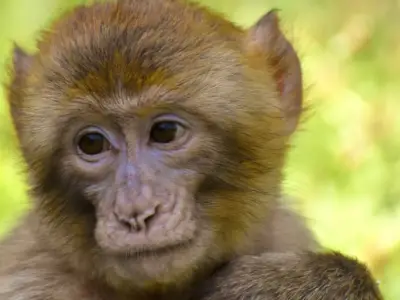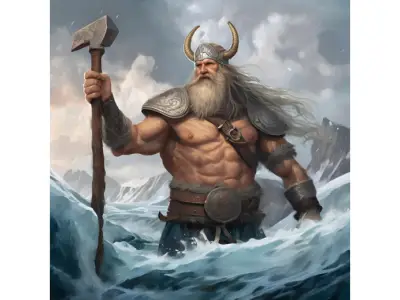Greek mythology features many fascinating stories, with heroes who embark on epic adventures and face extraordinary challenges. One such hero is Perseus. This blog post breaks down these captivating aspects of Perseus's story, including the myths surrounding him, his divine powers, and the symbols associated with his legend.
Jump to:
Recommended for you!
Best SellersWho is Perseus in Greek Mythology?
Perseus is one of the most celebrated heroes in Greek mythology. He’s best known for his daring quest to slay the monstrous Medusa and rescue the princess Andromeda. Perseus is the son of Zeus, the king of the Greek gods, and Danaë, a mortal princess. This divine parentage sets the stage for his extraordinary life filled with divine intervention and heroic feats.
What is Perseus the God of?
While Perseus is often referred to as a hero, not a god, his divine lineage grants him special status. He is not worshipped as a god with a specific domain, but his deeds and adventures have made him an enduring figure in Greek mythology. As the son of Zeus, he possesses remarkable strength, courage, and divine favour, but he doesn't preside over any particular aspect of life or nature like other gods.
The Myths and Legends of Perseus
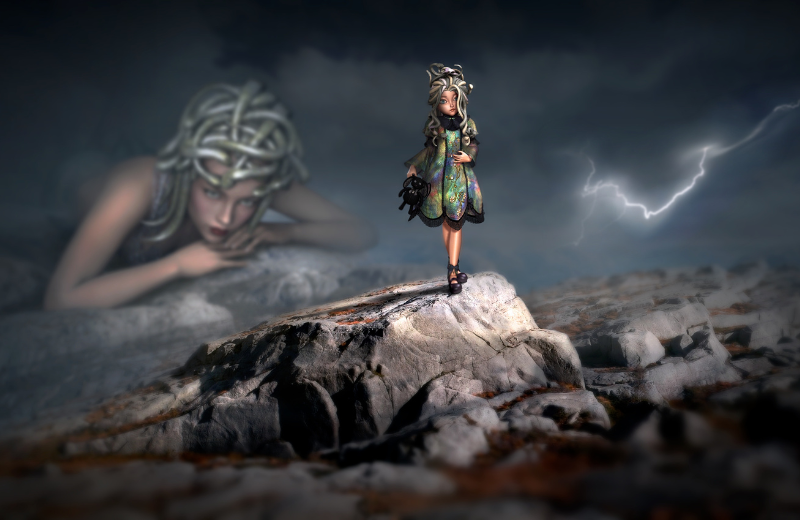
Perseus's life is filled with extraordinary adventures and divine interventions, from his miraculous birth to his heroic quests:
The Birth of Perseus
The story of Perseus begins with his mother, Danaë. According to myth, Danaë's father, King Acrisius of Argos, was warned by an oracle that his grandson would kill him. In a desperate attempt to avoid this fate, Acrisius locked Danaë in a bronze chamber to keep her from having children. However, Zeus visited her in the form of a golden shower, and Perseus was conceived. Acrisius, fearing the prophecy, placed Danaë and the infant Perseus in a chest and set them adrift at sea. They were rescued by a fisherman named Dictys, who raised Perseus as his own.
The Quest for Medusa
One of the most famous Greek myths involving Perseus is his quest to slay Medusa, a Gorgon with snakes for hair whose gaze could turn people to stone. Perseus received help from the gods for this dangerous task. Hermes provided him with winged sandals to fly, Athena gave him a polished shield to view Medusa's reflection without being turned to stone, and Hades granted him the Helm of Darkness for invisibility. With these divine gifts, Perseus successfully beheaded Medusa and placed her head in a magical bag. The head of Medusa retained its petrifying power, making it a formidable weapon that Perseus would use in later adventures.
Rescuing Andromeda
On his journey back home, Perseus encountered Andromeda, who was chained to a rock as a sacrifice to a sea monster. Andromeda's mother, Queen Cassiopeia, had boasted that her daughter was more beautiful than the Nereids, angering Poseidon who sent the sea monster as punishment. Using Medusa's head, Perseus turned the monster to stone and rescued her. Andromeda became his wife, and they had several children together, cementing Perseus's legacy further. Their children included Perses, who would become an ancestor to the Persian people, and Alcaeus, an ancestor of Hercules.
The Symbols of Perseus
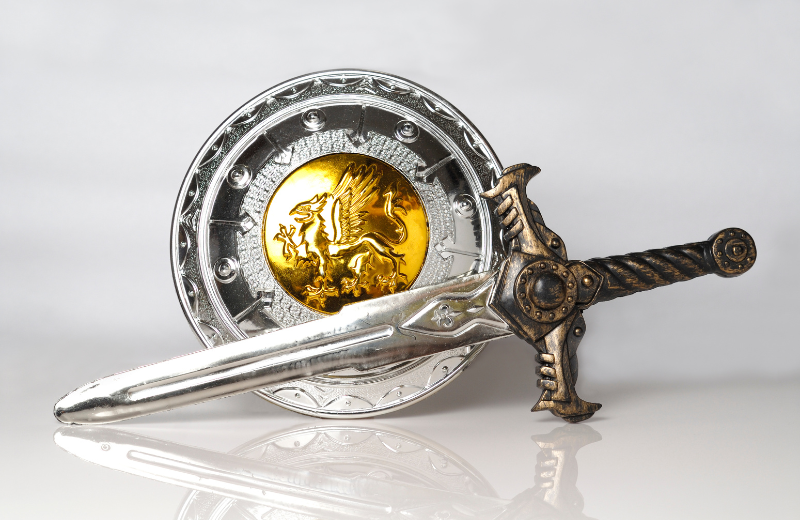
Perseus is often associated with several symbols that highlight his heroic nature and divine assistance. These symbols are central to his myth and serve to illustrate the extraordinary qualities and support he received from the gods.
- The Shield and Sword: Perseus's shield, given by Athena, and his sword, often depicted as a harpe (a sickle-shaped sword), symbolise his bravery and combat prowess. The shield represents protection and strategy, while the sword signifies his offensive capabilities. The shield's reflective surface was crucial in his battle against Medusa, allowing him to avoid her deadly gaze.
- The Head of Medusa: Perhaps the most iconic symbol associated with Perseus is the head of Medusa. It symbolises his triumph over evil and the cunning he used to achieve his goals. The image of Medusa's head also became a protective emblem, believed to ward off evil. In various art forms, Medusa's head is depicted on armour and shields, symbolising the power to protect and conquer.
- Winged Sandals: The winged sandals provided by Hermes symbolise speed and agility. They allowed Perseus to travel great distances quickly and added a divine element to his mobility. These sandals facilitated his journey to find and defeat Medusa and played a role in his subsequent adventures, highlighting his god-given swiftness and ability to traverse both the mortal and divine realms.
- The Helm of Darkness: Another significant symbol is the Helm of Darkness, given to Perseus by Hades. This helm granted him the power of invisibility, allowing him to approach Medusa unseen. The Helm of Darkness represents stealth and the element of surprise, both essential in Perseus's victory over the Gorgon.
- The Magical Bag (Kibisis): Perseus used a special bag, known as the Kibisis, to safely carry Medusa's head without the risk of being turned to stone. This bag symbolises caution and the importance of having the right tools for one's quest. It highlights the foresight and preparation that are key aspects of Perseus's heroic persona.
What Powers Does Perseus Have?
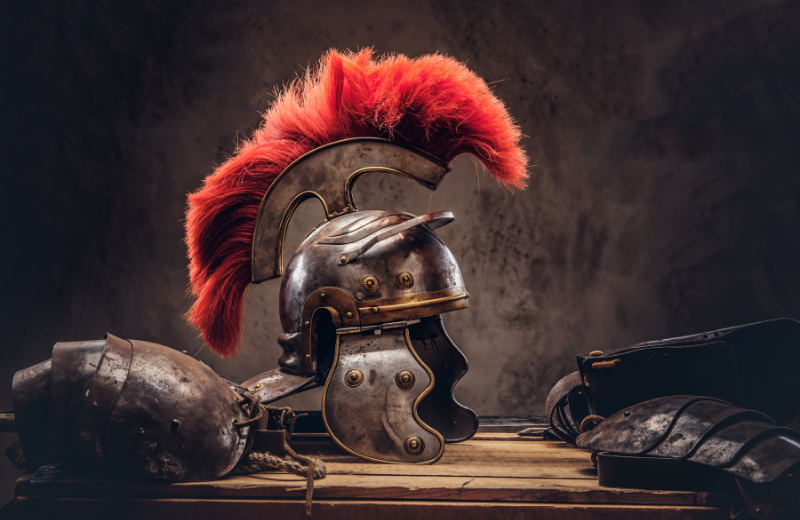
As the son of Zeus, Perseus possesses several powers that make him an extraordinary hero. These abilities, combined with divine assistance, set him apart as one of Greek mythology's most formidable figures.
- Superhuman Strength: As a demigod, Perseus has greater strength than ordinary mortals, which aids him in his battles and heroic endeavours. His superhuman strength allows him to face and overcome challenges that would be impossible for a normal human, contributing significantly to his legendary status.
- Divine Assistance: Throughout his adventures, Perseus receives help from various gods. These divine gifts, like Hermes' winged sandals and Athena's shield, give him abilities beyond those of a typical human hero. The intervention of the gods is a recurring theme in his story, providing him with the tools and guidance necessary for his quests.
- Combat Skills: Perseus is a skilled warrior, trained in the use of weapons and tactics. His combat prowess is evident in his encounters with formidable foes like Medusa and the sea monster. His ability to strategise and execute complex battle plans showcases his exceptional fighting skills and his capacity to handle diverse threats.
- Speed and Agility: Hermes’ winged sandals grant Perseus exceptional speed and agility. These abilities allow him to traverse great distances swiftly and evade dangers with ease. His enhanced mobility is crucial in his quests, particularly in his approach to slaying Medusa and rescuing Andromeda.
- Invisibility: The Helm of Darkness, given to Perseus by Hades, grants him the power of invisibility. This ability enables him to approach enemies undetected and execute surprise attacks. The helm's power plays a role in his successful beheading of Medusa, allowing him to remain unseen while he strikes.
Perseus's Relationships, Children, and Family Tree
Perseus's relationships and lineage are significant aspects of his story, intertwining with various notable figures and adding depth to his myth.
Parents and Birth
Perseus's father is Zeus, the king of the gods, and his mother is Danaë, a mortal princess. This mixed heritage of divine and mortal lineage sets Perseus apart as a unique figure in Greek mythology. His birth story, involving Zeus's divine intervention and the subsequent threats from his grandfather, King Acrisius, highlights the blend of human vulnerability and divine power in his character.
Marriage to Andromeda
After rescuing Andromeda, Perseus married her, and they had several children, including Perses, who would become an ancestor to the Persian people. Their union is a symbol of heroism and love prevailing against all odds. The story of Perseus and Andromeda is one of mutual bravery and devotion, showcasing Perseus not just as a hero, but also as a loving husband and father.
Notable Descendants
Perseus and Andromeda's lineage includes many notable figures. One of their descendants is Hercules, another famous Greek hero known for his incredible strength and twelve labours. This connection underscores the lasting impact of Perseus's legacy. Hercules’s legendary feats and his role in various myths further extend the influence of Perseus’s bloodline in Greek mythology. Perseus’ legacy is also seen in other descendants who played important roles in mythological tales, ensuring that his heroic spirit continued through generations.
Perseus's Worship and Legacy
Perseus may not have been worshipped as a god, but his impact on culture and mythology is undeniable. His tales of heroism and divine encounters have left a lasting mark on history, art, and even the night sky. Celebrated through various mediums, Perseus's story continues to inspire and fascinate people around the world.
Statues and Art
While Perseus was not worshipped as a god, his story was celebrated in various ways. Temples and statues were erected in his honour, and his adventures were depicted in art and literature. His tale has been passed down through generations, continuing to inspire and fascinate people.
Perseus is often depicted in statues and sculptures, such as the famous "Perseus with the Head of Medusa" by Benvenuto Cellini. These works of art capture the drama and heroism of his story, keeping his legend alive. Artistic representations of Perseus often focus on his most famous feats, such as slaying Medusa and rescuing Andromeda, highlighting his bravery and the divine aid he received.
Constellation
Perseus's legacy also extends to the night sky. The constellation Perseus is named after him, commemorating his place in Greek mythology. This constellation reminds us of his heroic deeds and the impact of his story on human culture. The stars of the constellation Perseus serve as an eternal tribute to his adventures, ensuring that his story is told for generations to come. Visible in the northern hemisphere, the constellation has been used in navigation and storytelling, further embedding Perseus's legacy in both practical and cultural contexts.
Recommended for you!
Best SellersFrequently Asked Questions About Perseus
Who rescued Andromeda?
Perseus rescued Andromeda from being sacrificed to a sea monster. He used Medusa's head to turn the monster to stone, thereby saving her life.
Is Perseus the son of Poseidon?
Perseus is not the son of Poseidon. He is the son of Zeus, the king of the gods, and Danaë, a mortal princess.
Who is Perseus to Hercules?
Perseus is an ancestor of Hercules. Hercules, known for his incredible strength and twelve labours, is one of the notable descendants of Perseus and Andromeda.
Is Perseus good or bad?
Perseus is considered a hero in Greek mythology. He is celebrated for his brave deeds, including slaying Medusa and rescuing Andromeda, which highlight his role as a good and noble character.
Who was Perseus killed by?
According to mythology, Perseus was not killed by anyone. He lived a long life and eventually died of natural causes.
What is the female version of Perseus?
There isn't a direct female counterpart to Perseus in Greek mythology. However, many heroines, like Atalanta and Artemis, exhibit qualities of bravery and strength similar to those of Perseus.
Why did Perseus cut off Medusa's head?
Perseus was tasked with bringing back the head of Medusa by King Polydectes. Medusa's head retained its petrifying power even after her death, making it a valuable asset for Perseus in his subsequent adventures.
Is Medusa Perseus's mum?
Medusa is not Perseus's mother. Perseus's mother is Danaë, and Medusa is the Gorgon whom Perseus beheaded.
Who was Perseus in love with?
Perseus fell in love with Andromeda, whom he rescued from a sea monster. They married and had several children together.
Why did Perseus not turn to stone?
Perseus did not turn to stone because he used a reflective shield given to him by Athena to view Medusa's reflection rather than looking at her directly. This allowed him to behead her without being petrified.
What was Perseus's fatal flaw?
Perseus is often portrayed as a nearly flawless hero in Greek mythology. Unlike many other Greek heroes who have significant tragic flaws, Perseus is depicted as clever, brave, and virtuous.
Study Greek Mythology for £29
If you’re fascinated by Perseus and the stories within Greek mythology, why not deepen your knowledge with our Greek Mythology Diploma Course at Centre of Excellence? This fascinating course covers the myths, gods, heroes, and symbols of ancient Greece, and for a limited time, you can enrol for just £29!










